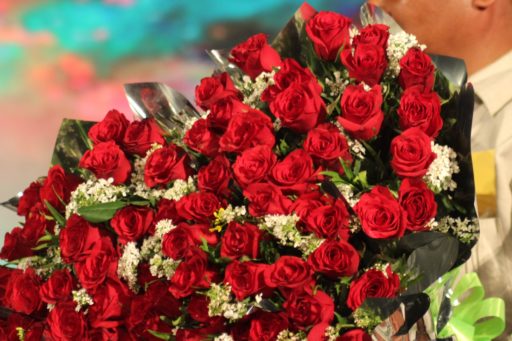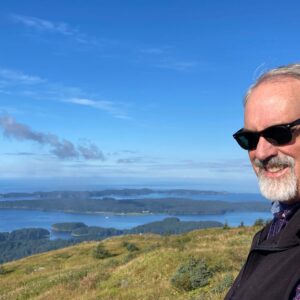If, as is the case, the word “anthology” derives from a combination of Greek words meaning, “gathering of flowers,” then most poetry anthologies might best be described as mixed bouquets. Readers search them for a few spectacular roses and lilies amid the humbler baby’s breath and fern fronds that fill out the collection. Yet I suspect it’s far easier for twenty people to agree on the beauty of a particular flower than the merits of a recently written poem. Contemporary poetry is a genre sufficiently vast and varied to include verse so libre it borders on the anarchic as well as the most exacting of formalisms. Poetry can, of course, be about anything, but not everything written in verse merits the term, “poem.” Emily Dickinson famously wrote, “If I feel physically as if the top of my head were taken off, I know that is poetry,” but a poem may cleanly remove one reader’s scalp while barely mussing the hair of another. Editors, then, must accommodate a diversity of tastes when curating an anthology.
Two new anthologies of what might be called “spiritual verse,” one released this fall and the other due to be published early next year, are noteworthy for their variety and quality. Christian Poetry in America Since 1940 (Paraclete Press, 2022), edited by Micah Mattix and Sally Thomas, begins with an explanation of how and why the poems were chosen. In his insightful introduction, Mattix offers a provisional answer to the question, “what exactly is Christian poetry?” He agrees with C.S. Lewis that, while there is no such thing as “Christian literature,” there may be an identifiably “Christian approach to literature.” In contrast to what Lewis calls the “modern” approach, in which originality and self-expression are prized, a Christian approach (according to Lewis) values mimesis, an imitation of the created order of which humanity is merely a contingent and dependent part. For the Christian writer, self-expression is not an end, but a means toward a particular and self-transcending representation of that created order.
Choosing not to cast an overly broad net, Mattix and Thomas include only American poets born on or after 1940 whose work explicitly engages Christian belief and practice. That leaves out prominent older poets like Wendell Berry and Luci Shaw as well as those whose Christian content remains largely implicit, such as Louise Erdrich, Carolyn Forché, and Martha Serpas. Lamentable as these omissions are, the more than thirty poets chosen present a dazzling variety of styles, sensibilities, and degrees of religious conviction.
Faith and uncertainty coexist—as they must in any mature believer—providing a fertile tension these writers creatively exploit. Paul Mariani, for example, writes in “Quid Pro Quo” of his anger toward God after his wife’s second miscarriage in four months, giving a middle finger salute toward the heavens. By the poem’s end, however, Mariani ponders the meanings implicit in the subsequent live birth of a son who is later ordained a priest, wondering “How does one bargain / with a God like this who, quid pro quo, ups / the ante each time he answers one sign with another?”
In an explicit response to Philip Larkin’s famous poetic reflection on waning religious faith, “Churchgoing,” Marilyn Nelson joins Lutherans sitting “stolidly in rows,” and contrasts centuries of hypocrisy by white, slaveholding Christians with the faithfulness of enslaved persons and their descendants:
Oh, sometimes it causes me to tremble who believe most, who so much have lost. To be a Christian one must bear a cross. I think belief is given to the simple As recompense for what they do not know.
Some of the poets included here will be familiar to Christian readers of poetry: Scott Cairns (represented by two of his most devastating poetic self-interrogations, “Possible Answers to Prayer,” and “Bad Theology (A Quiz)”), Jeanne Murray Walker, Angela Alaimo O’Donnell, and Christian Wiman. Others may be new names to pay attention to: Benjamin Myers (whose “The Reverend on Natural Theology” is a small masterpiece of anti-sentimentality), Ryan Williams, and Chelsea Wagenaar. There’s much to enjoy and learn from in this welcome and well-curated volume.
Between Heaven and Earth: Eve Poems (scheduled for publication in April, 2023 by Orison Books) has a narrower focus and a broader range of sensibilities. Editors Nomi Stone and Luke Hankins have gathered recent poems about the Biblical figure of Eve that variously portray their subject as penitent, renegade, feminist, heretic, liberator, and genderqueer subversive. Several poets here are, contrary to Blake’s assessment of Milton, fully conscious as being of the Devil’s party, denouncing a perceived repressive Jewish-Christian patriarchy. In Ansel Elkins’s “Autobiography of Eve” the speaker summarizes her exile from Paradise with the pronouncement, “Let it be known; I did not fall from grace // I leapt / to freedom.” Ona Gritz’s “Eden” is more ambiguous. Here, an increasingly restless Eve looks forward to talking with her “new friend…curled around / a tree limb,” who asks unexpected questions and from whom Eve learns startling new words: “sorrow,” “longing,” and “I want.”
This anthology features some famous names such as Lucille Clifton, Rita Dove, Ada Limón, and Toni Morrison, and their work is exemplary. It’s the lesser known but remarkably talented poets, however, who repeatedly caught my eye. Michael Dechane’s “Dressing,” is ostensibly a midrash on God’s fashioning “garments of skins” to clothe the newly self-conscious first couple. Below the surface, though, lurks a fascinating meditation on the violence humans rely upon to live in creation. At first appalled by God’s slaughter of “the sheep who came on their own,” Adam and Eve simultaneously reject and covet God’s offer of sheepskin clothing, but when asked what else they might need in their banishment, Adam utters a surprising new word, “knife.”
Jessica Jacobs’s exquisite “Sleepwalkers in the Garden” braids the story of the Fall with her grandmother’s last days, pondering “Why had it taken me until then to see? Paradise / is every moment we’ve ever left, all the small / unnoticed gardens we can never again enter.” Those fortunate to know Frank Paino’s work will recognize in “After the First Bite,” his blend of rich sensual detail and haunting inquiry into human behavior as a sullen Adam, having freely accepted Eve’s dubious gift:
…slouched into the leaves
already tarnished
with the rumor of their falling,
embraced the awful legacy
of what he knew he’d started
when he took the gift,
then laid the blame.
If you don’t already recognize the names of these emerging poetic voices, I urge you to remedy that fault.
The content and quality of these two anthologies reflect the small presses that publish them. According to its website, Paraclete Press “presents a full expression of Christian belief and practice—Catholic, evangelical, mainline Protestant, Orthodox.” Orison Books “actively pursues spiritual and religious perspectives without subscribing to a particular ideological standpoint, and…emphasizes…the metaphysical and existential underpinnings of work that may not, on its surface, always seem ‘spiritual.’” Given the precarious state of small publishing houses today, both deserve to be better known. These anthologies provide an ideal introduction.
Brian Volck is a pediatrician and writer living in Baltimore. He is the author of a poetry collection, Flesh Becomes Word, and a memoir, Attending Others: A Doctor’s Education in Bodies and Words. His website is Brianvolck.com





